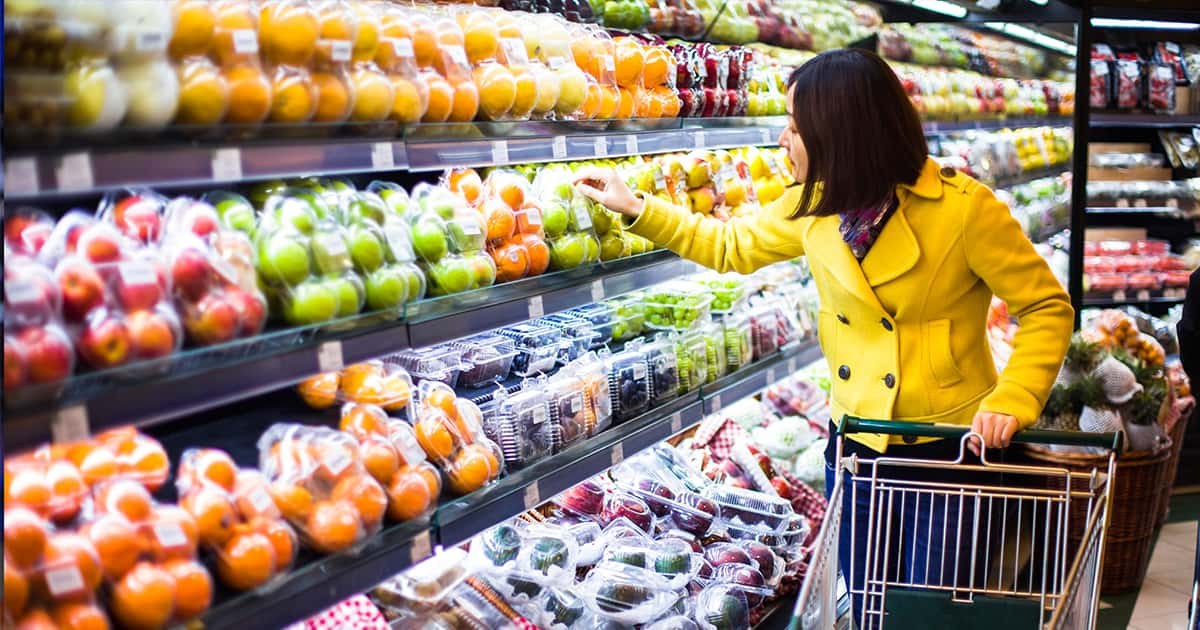
Food Waste Start-Ups On The Rise As Grocers Go Green
Food Waste Start-Ups On The Rise As Grocers Go Green
Food waste continues to be a growing problem in today's world. According to the UN's Food Waste Index Report, there were about 931 million tonnes of food wasted in 2019, accounting for 17% of total food production globally. Households were responsible for two-thirds of the food waste, while retail and foodservice were responsible for the remaining one-third.
Today's venture-capital firms are hoping their latest efforts will help eliminate the issue once and for all. Some startups are experimenting with artificial intelligence to better quantify customer demand, while others are using programs to help streamline the logistics of selling irregularly-shaped produce that grocers often turn down. Automating these processes would help ensure that there isn't a surplus of perishables on the shelves, but also enough of them to keep up with consumer needs.
There is a growing demand for these novel solutions, and big companies are looking to food waste startups in particular for them. In fact, mentions of "food waste" on corporate earnings calls have tripled since the second quarter of 2016, according to CB Insights. Additionally, companies that are developing food waste technologies have increased their funding to $170 billion between January and June of 2021, which is approximately $20 billion more than all that was raised the year prior.
Currently, the main focus of these food waste startups is to tie up with large supermarket chains that are willing to allow their technologies to be used in their businesses. Given that some investors are still unsure about taking the plunge, a more united effort towards the food waste problem by grocers and restaurants alike would make the investment look a lot more appealing. A key issue is that, despite the increasing interest in food waste solutions, there are still not enough companies that are willing to pay for them.
Still, the COVID-19 pandemic has helped keep the spotlight on the food-tech sector as more people relied on online shopping for their groceries. In any case, investing in such startups could be promising in the months to come.
“I think most [companies] in general are feeling more pressure — and I mean that in a good way — to focus on environmental, social, and governance (ESG) efforts,” said Adam Boutin, a partner at Capital One Ventures.
“It’s just a win-win for the environment, for grocery stores, for the industry. Mountains of produce in grocery stores might look good to consumers, but it’s important to stock only what is needed."
READ MORE

As the crisis continues, airlines are hemhorraging money. Will airlines survive this crisis? And if so, how?

There is a reason why shows like Gray's Anatomy and ER are so addictive: Hospital drama is insane, and not just on TV—that stuff happens in real life, too.

Courtroom cases can take months or even years to go in front of a judge. Then, in the blink of an eye, it can all unravel spectacularly.

There's one unfortunate side of working in customer service that's just unavoidable: customers. If you've ever worked with customers, you'll relate.

While it can seem like teachers don't know much more than their students, these traumatized pupils think the story's a little more complicated.

From one-in-a-million cases to deranged patients and everything in between, these doctors have shared the medical moments they will never—ever—forget.
Disclaimer
The information on MoneyMade.com is intended to support financial literacy and should not be considered tax or legal advice. It is not meant to serve as a forecast, research report, or investment recommendation, nor should it be taken as an offer or solicitation to buy or sell any securities or adopt any particular investment strategy. All financial, tax, and legal decisions should be made with the help of a qualified professional. We do not guarantee the accuracy, timeliness, or outcomes associated with the use of this content.
Dear reader,
It’s true what they say: money makes the world go round. In order to succeed in this life, you need to have a good grasp of key financial concepts. That’s where Moneymade comes in. Our mission is to provide you with the best financial advice and information to help you navigate this ever-changing world. Sometimes, generating wealth just requires common sense. Don’t max out your credit card if you can’t afford the interest payments. Don’t overspend on Christmas shopping. When ordering gifts on Amazon, make sure you factor in taxes and shipping costs. If you need a new car, consider a model that’s easy to repair instead of an expensive BMW or Mercedes. Sometimes you dream vacation to Hawaii or the Bahamas just isn’t in the budget, but there may be more affordable all-inclusive hotels if you know where to look.
Looking for a new home? Make sure you get a mortgage rate that works for you. That means understanding the difference between fixed and variable interest rates. Whether you’re looking to learn how to make money, save money, or invest your money, our well-researched and insightful content will set you on the path to financial success. Passionate about mortgage rates, real estate, investing, saving, or anything money-related? Looking to learn how to generate wealth? Improve your life today with Moneymade. If you have any feedback for the MoneyMade team, please reach out to [email protected]. Thanks for your help!
Warmest regards,
The Moneymade team







